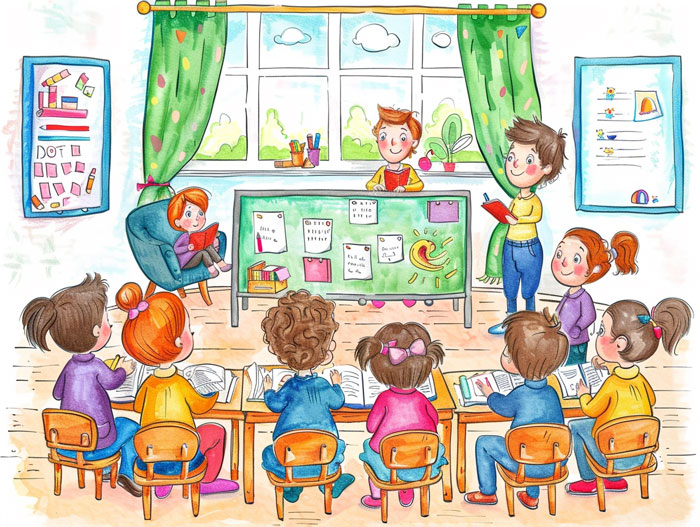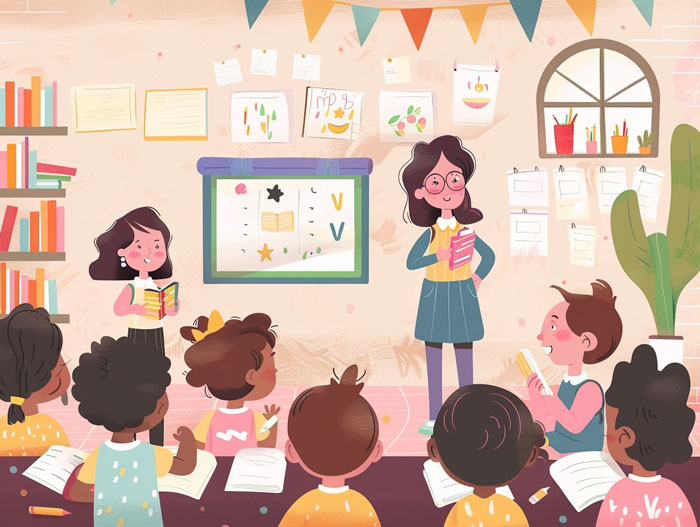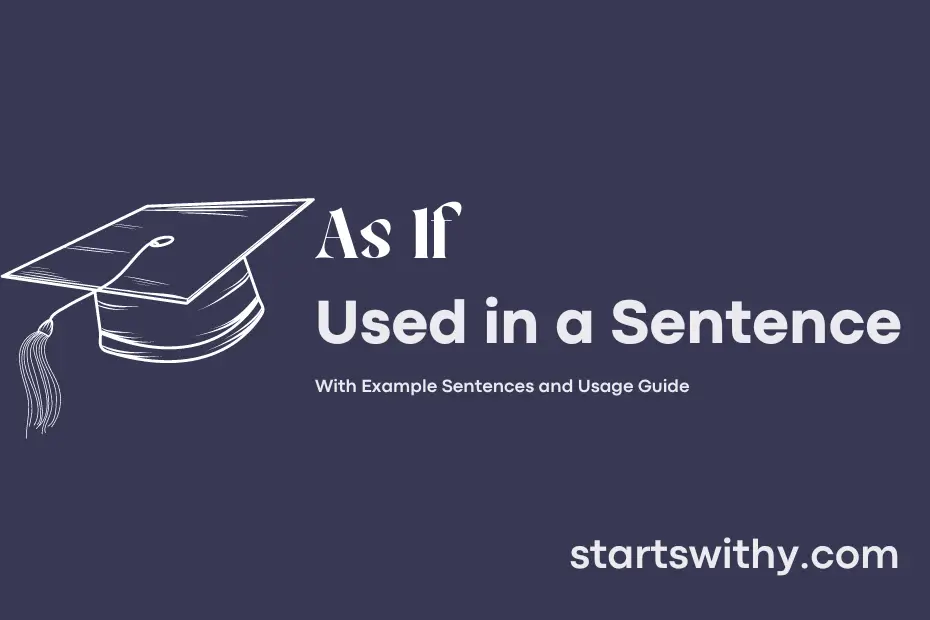Have you ever come across a sentence that makes you stop and ponder? Sentences that use “as if” fall under this category. When someone uses “as if” in a sentence, they are often comparing two things indirectly, creating a sense of hypothetical or unreal situations.
By using “as if,” writers and speakers convey a comparison between the actual situation and a hypothetical one, adding depth and creativity to their communication. This phrase allows for the depiction of scenarios that may seem unlikely or imaginative, stimulating the imagination of the audience.
7 Examples Of As If Used In a Sentence For Kids
- It felt as if the sun was giving us a warm hug.
- She danced as if she had wings on her feet.
- The flowers looked as if they were smiling at us.
- The wind whispered as if it had a secret to tell.
- The cat purred as if it was singing a lullaby.
- The rain fell as if the sky was crying tears of joy.
- The butterfly fluttered as if it was dancing in the air.

14 Sentences with As If Examples
- I woke up so late this morning, as if my alarm didn’t go off.
- She asked me to finish the assignment by tomorrow, as if I have nothing else to do.
- He’s acting all stressed out, as if he’s the only one with exams coming up.
- She talked for hours on the phone, as if she didn’t have any studying to do.
- They ate like they were starved, as if they hadn’t had a meal in days.
- He walked into the class with a smug look, as if he aced the test.
- She dressed up so fancy, as if she was going to a party instead of a lecture.
- They laughed so loudly in the library, as if they were in a noisy café.
- He kept checking his phone every minute, as if he was waiting for an important message.
- She complained about the cafeteria food, as if she expected gourmet meals.
- They debated for hours, as if their lives depended on winning the argument.
- He walked out of the exam room confidently, as if he had answered every question perfectly.
- She acted like she was the teacher’s pet, as if she could get away with anything.
- They studied together for hours, as if they were preparing for a marathon instead of exams.

How To Use As If in Sentences?
As If is a common phrase used in English to express a hypothetical situation or comparison. It is often used to show something that is not true or real, but is being expressed to make a point or emphasize a feeling.
When using As If in a sentence, it is important to remember that it is followed by a clause that describes the imagined situation or comparison. For example, “He acted as if he had won the lottery.” In this sentence, the speaker is saying that the person acted as though he had won the lottery, even though he had not actually won.
Another example could be, “She looked at him as if he was crazy.” In this case, the speaker is saying that she looked at him in a way that suggests he is crazy, even though he may not actually be crazy.

It is also important to note that As If is often used in a sarcastic or exaggerated way. For instance, “She walked by as if she owned the place.” In this sentence, the speaker is implying that she walked by with a sense of arrogance as though she believed she owned the place.
Overall, using As If in a sentence can help convey a sense of imagination, exaggeration, or comparison. It is a useful phrase to add depth and nuance to your language and can help make your writing more expressive.
Conclusion
In writing, using sentences with “as if” can add depth and creativity to the narrative by implying hypothetical or imaginative scenarios. These constructions allow the writer to convey comparisons, create vivid imagery, and evoke emotions effectively. By using “as if” in sentences, authors can invite readers to immerse themselves in the narrative and engage with the text on a deeper level.
Overall, sentences with “as if” serve as a powerful tool in language that can elevate the quality of writing by enhancing descriptions, creating nuanced meanings, and captivating the reader’s imagination. Incorporating this phrase thoughtfully into your writing can help convey complex ideas, express emotions, and enrich the overall reading experience.



